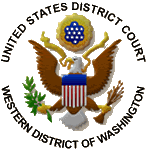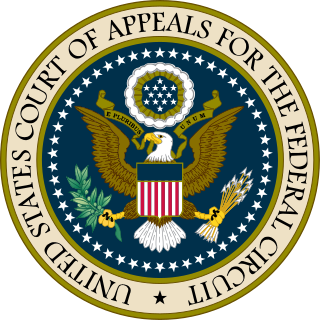Related Research Articles
Copyright is a type of intellectual property that gives its owner the exclusive right to make copies of a creative work, usually for a limited time. The creative work may be in a literary, artistic, educational, or musical form. Copyright is intended to protect the original expression of an idea in the form of a creative work, but not the idea itself. A copyright is subject to limitations based on public interest considerations, such as the fair use doctrine in the United States.
An end-user license agreement is a legal contract entered into between a software developer or vendor and the user of the software, often where the software has been purchased by the user from an intermediary such as a retailer. A EULA specifies in detail the rights and restrictions which apply to the use of the software.
Limitations on exclusive rights: Computer programs is the title of the current form of section 117 of the U.S. Copyright Act. In United States copyright law, it provides users with certain adaptation rights for computer software that they own.
The first-sale doctrine is an American legal concept that limits the rights of an intellectual property owner to control resale of products embodying its intellectual property. The doctrine enables the distribution chain of copyrighted products, library lending, giving, video rentals and secondary markets for copyrighted works. In trademark law, this same doctrine enables reselling of trademarked products after the trademark holder puts the products on the market. In the case of patented products, the doctrine allows resale of patented products without any control from the patent holder. The first sale doctrine does not apply to patented processes, which are instead governed by the patent exhaustion doctrine.
Software copyright is the application of copyright law to machine-readable software. While many of the legal principles and policy debates concerning software copyright have close parallels in other domains of copyright law, there are a number of distinctive issues that arise with software. This article primarily focuses on topics particular to software.
Copyright misuse is an equitable defence to copyright infringement in the United States based upon the doctrine of unclean hands. The misuse doctrine provides that the copyright holder engaged in abusive or improper conduct in exploiting or enforcing the copyright will be precluded from enforcing his rights against the infringer. Copyright misuse is often comparable to and draws from the older and more established doctrine of patent misuse, which bars a patentee from obtaining relief for infringement when he extends his patent rights beyond the limited monopoly conferred by the law.
A software license is a legal instrument governing the use or redistribution of software. Under United States copyright law, all software is copyright protected, in both source code and object code forms, unless that software was developed by the United States Government, in which case it cannot be copyrighted. Authors of copyrighted software can donate their software to the public domain, in which case it is also not covered by copyright and, as a result, cannot be licensed.

The copyright law of Canada governs the legally enforceable rights to creative and artistic works under the laws of Canada. Canada passed its first colonial copyright statute in 1832 but was subject to imperial copyright law established by Britain until 1921. Current copyright law was established by the Copyright Act of Canada which was first passed in 1921 and substantially amended in 1988, 1997, and 2012. All powers to legislate copyright law are in the jurisdiction of the Parliament of Canada by virtue of section 91(23) of the Constitution Act, 1867.
Shrink wrap contracts are boilerplate contracts packaged with products; usage of the product is deemed acceptance of the contract.
Intellectual property rights (IPRs) have been acknowledged and protected in China since the 1980s. China has acceded to the major international conventions on protection of rights to intellectual property. Domestically, protection of intellectual property law has also been established by government legislation, administrative regulations, and decrees in the areas of trademark, copyright, and patent. This has led to the creation of a comprehensive legal framework to protect both local and foreign intellectual property. Despite this, copyright violations are common in the PRC. The American Chamber of Commerce in China surveyed over 500 of its members doing business in China regarding IPR for its 2016 China Business Climate Survey Report, and found that IPR enforcement is improving, but significant challenges still remain. The results show that the laws in place exceed their actual enforcement, with patent protection receiving the highest approval rate, while protection of trade secrets lags far behind. Many US companies have claimed that the Chinese government has stolen their intellectual property sometime in 2009–2019.

Vault Corporation v Quaid Software Ltd. 847 F.2d 255 is a case heard by the United States Court of Appeals for the Fifth Circuit that tested the extent of software copyright. The court held that making RAM copies as an essential step in utilizing software was permissible under §117 of the Copyright Act even if they are used for a purpose that the copyright holder did not intend. It also applied the "substantial noninfringing uses" test from Sony Corp. of America v. Universal City Studios, Inc. to hold that Quaid's software, which defeated Vault's copy protection mechanism, did not make Quaid liable for contributory infringement. It held that Quaid's software was not a derivative work of Vault's software, despite having approximately 30 characters of source code in common. Finally, it held that the Louisiana Software License Enforcement Act clause permitting a copyright holder to prohibit software decompilation or disassembly was preempted by the Copyright Act, and was therefore unenforceable.
Proprietary software, also known as non-free software or closed-source software, is computer software for which the software's publisher or another person reserves some rights from licensees to use, modify, share modifications, or share the software. It sometimes includes patent rights.
The copyright law of Australia defines the legally enforceable rights of creators of creative and artistic works under Australian law. The scope of copyright in Australia is defined in the Copyright Act 1968, which applies the national law throughout Australia. Designs may be covered by the Copyright Act as well as by the Design Act. Since 2007, performers have moral rights in recordings of their work.

Copyright infringement is the use of works protected by copyright law without permission for a usage where such permission is required, thereby infringing certain exclusive rights granted to the copyright holder, such as the right to reproduce, distribute, display or perform the protected work, or to make derivative works. The copyright holder is typically the work's creator, or a publisher or other business to whom copyright has been assigned. Copyright holders routinely invoke legal and technological measures to prevent and penalize copyright infringement.

The Digital Millennium Copyright Act (DMCA) is a 1998 United States copyright law that implements two 1996 treaties of the World Intellectual Property Organization (WIPO). It criminalizes production and dissemination of technology, devices, or services intended to circumvent measures that control access to copyrighted works. It also criminalizes the act of circumventing an access control, whether or not there is actual infringement of copyright itself. In addition, the DMCA heightens the penalties for copyright infringement on the Internet. Passed on October 12, 1998, by a unanimous vote in the United States Senate and signed into law by President Bill Clinton on October 28, 1998, the DMCA amended Title 17 of the United States Code to extend the reach of copyright, while limiting the liability of the providers of online services for copyright infringement by their users.

Sega Enterprises Ltd. v. Accolade, Inc., 977 F.2d 1510, is a case in which the United States Court of Appeals for the Ninth Circuit applied American intellectual property law to the reverse engineering of computer software. Stemming from the publishing of several Sega Genesis games by video game publisher Accolade, which had disassembled Genesis software in order to publish games without being licensed by Sega, the case involved several overlapping issues, including the scope of copyright, permissible uses for trademarks, and the scope of the fair use doctrine for computer code.

MDY Industries, LLC v. Blizzard Entertainment, Inc and Vivendi Games, Inc., 629 F.3d 928, is a case decided by the United States Court of Appeals for the Ninth Circuit. At the district court level, MDY had been found liable under theories of copyright and tort law for selling software that contributed to the breach of Blizzard's End User License Agreement (EULA) and Terms of Use (ToU) governing the World of Warcraft video game software.
The court's ruling was appealed to the United States Court of Appeals for the Ninth Circuit, which reversed the district court in part, upheld in part, and remanded for further proceedings. The Court of Appeals ruled that for a software licensee's violation of a contract to constitute copyright infringement, there must be a nexus between the license condition and the licensor’s exclusive rights of copyright. However, the court also ruled, contrary to Chamberlain v. Skylink, that a finding of circumvention under the Digital Millennium Copyright Act does not require a nexus between circumvention and actual copyright infringement.

Vernor v. Autodesk, Inc. was a case in the United States District Court for the Western District of Washington regarding the applicability of the first-sale doctrine to software sold under the terms of so-called "shrinkwrap licensing." The court held that when the transfer of software to the purchaser materially resembled a sale it was, in fact, a "sale with restrictions on use" giving rise to a right to resell the copy under the first-sale doctrine. As such, Autodesk could not pursue an action for copyright infringement against Vernor, who sought to resell used versions of its software on eBay. The decision was appealed to the United States Court of Appeals for the Ninth Circuit, which issued a decision on September 10, 2010, reversing the first-sale doctrine ruling and remanding for further proceedings on the misuse of copyright claim. The Ninth Circuit's decision asserted that its ruling was compelled by Ninth Circuit precedent, but observed that the policy considerations involved in the case might affect motion pictures and libraries as well as sales of used software.

Bowers v. Baystate Technologies, 320 F.3d 1317, was a U.S. Court of Appeals Federal Circuit case involving Harold L. Bowers and Baystate Technologies over patent infringement, copyright infringement, and breach of contract. In the case, the court found that Baystate had breached their contract by reverse engineering Bower's program, something expressly prohibited by a shrink wrap license that Baystate entered into upon purchasing a copy of Bower's software. This case is notable for establishing that license agreements can preempt fair use rights as well as expand the rights of copyright holders beyond those codified in US federal law.
Quaid Software, Ltd. was a software publisher based in Toronto, Ontario. The company's best known product was Copywrite which company president Robert McQuaid claimed was "for making legal backup copies of a protected program."
References
- ↑ Software Enforcement Act - Louisiana Revised Statutes 51:1963.
- 1 2 Software Enforcement Act - Louisiana Revised Statutes 51:1964.
- 1 2 3 4 Bartimo, Jim (19 March 1984). "Louisiana legislation would punish software pirates". InfoWorld. p. 17. Retrieved 17 October 2011.
- 1 2 3 4 Bloombecker, Jay (Spring 1986). "Lobbying for Computer Legislation". ACM Special Interest Group Computers and Society. 16 (1): 2–6. Retrieved 17 October 2011.
- 1 2 3 Bloombecker, Jay (4 August 1986). "Software laws: A brief history". Computerworld. p. 58. Retrieved 17 October 2011.
- ↑ Bates, James (24 June 1986). "High-Tech Piracy: Dispute Points Up Copying Controversy". Los Angeles Times. Retrieved 17 October 2011.
- ↑ Vault Corp. v. Quaid Software Ltd. , 655F.Supp.750 (United States District Court, E.D. Louisiana12 February 1987).
- 1 2 Vault Corp. v. Quaid Software Ltd. , 847F.2d255 (United States Court of Appeals, Fifth Circuit20 June 1988).